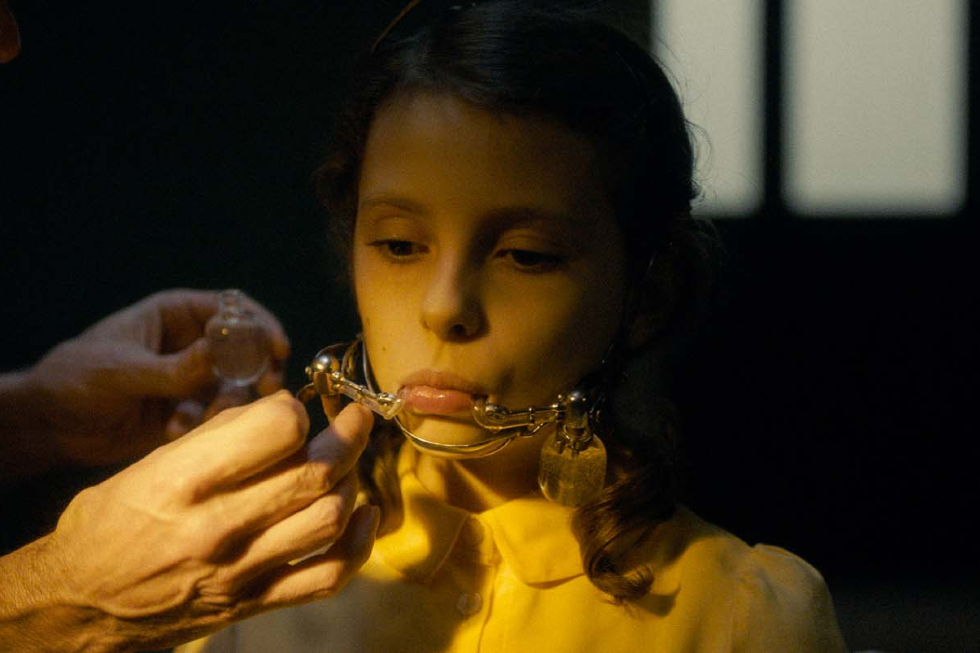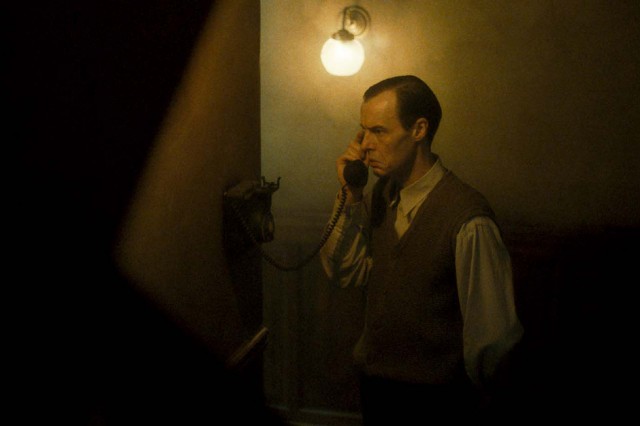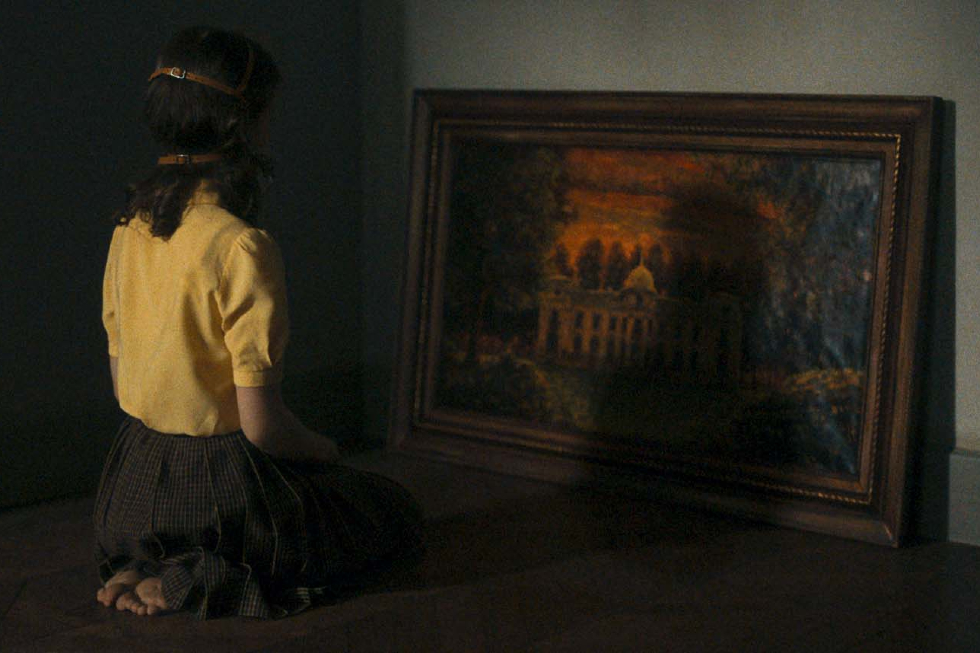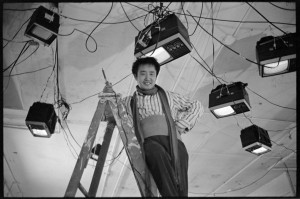“Strange and Frequently Disturbing” Earwig – Reviewed

“It feels daring, thrilling almost, in this age of ‘content’, to not have all the details laid out for us like breadcrumbs.” Mike Pinnington reviews Lucile Hadzihalilovic’s oneiric latest film, Earwig…
Almost every frame of director Lucile Hadzihalilovic’s film, Earwig (her first English language feature), is dreamlike. The camera languidly lingers, to produce gauzy, often painterly images of the strange, frequently disturbing, oneiric lives it follows. The experience is not always – nor should it be – pleasant, or linear; chronology, location – reality itself – cannot be relied upon in this world.
The narrative, most of which takes place in an austere, shuttered apartment, is sparse; the first dialogue occurs after the twenty-minute mark. Patience is rewarded, however, and moments of uncanny beauty are frequent (as are references to the unsettling interiors of Danish painter Vilhelm Hammershøi). We look on as a toothless girl named Mia (Romane Hemelaers) is watched over – looked after would be pushing it – by Paul Hilton’s careworn Albert. His principal job seems to be to fit her with dentures of ice, which gradually melt into an elaborate, awkward looking mouthpiece. Over the telephone, Albert gives reports to his ‘Master’ of Mia’s progress – such as it is.
Trapped in this routine, his life is almost as solitary and miserable as the girl’s must be. Soon, though, Albert is told that Mia must be prepared for the outside world. There, possibly for the first time, and dressed for the occasion in a smart red coat, she spies and abruptly races towards a pond. What follows recalls the perilous opening scene from Nicolas Roeg’s Don’t Look Now (though, spoiler alert, we are spared a repeat of that grim outcome). In the aftermath, a woman looks on mysteriously from a bridge.

Later, escaping the strictures of his duties for once, we find Albert in a pub. There he is joined by another man (played with chilling ambivalence by Peter Van Den Begin), who infers that he knows, although can’t place Albert. “We’ve met before. I’m sure of it,” he says. “Although for the moment, I can’t quite recall where.” The war? “Or was it long before? At the orphanage?” Recognising a chastised animal when she sees one, barmaid Celeste (Romola Garai) sympathetically brings him a placatory drink, “on the house”. It is the woman from the bridge. Could this small act of tenderness offer him and maybe even the girl an escape route from their strange existence?
We should know by now, though, that such conventions of narrative must not be expected of Earwig. Instead, Albert’s increasingly unwelcome drinking partner continues to prod and imply, forcing an act of terrible violence which I won’t reveal here; significantly, this event’s outcome will be mirrored, in graphic and suitably surreal fashion, come the end of the film. All the while, another lone figure played by an almost comically youthful looking Alex Lawther – whose interest in the matter is anyone’s guess – watches on from the bar.
Ghosts and questions continue to lurk around every dimly (albeit strikingly) lit corner. Answers rarely rear their head – not satisfactorily at least. Indeed, until we see a date on Mia’s birth certificate, such is the scant nature of referents to grasp on to here that it’s very hard even to pin down when, or even where, the film is set. And it feels daring, thrilling almost, in this age of ‘content’, to not have such details laid out for us like breadcrumbs. Rather than alienate, just as with Hadzihalilovic’s equally gnomic film Evolution (2015), such ambiguities serve to intrigue and fixate.

Eventually Albert gets word that it is time to leave and, via train, delivers Mia to a country house that we’ve seen previously, in the form of a painting. Once there, Albert, in a prolonged climax, will fatefully meet Celeste once again.
As the credits roll, questions remain; like a dream you can’t shake off, they linger. Who are these people to each other? Why do their lives seem so intertwined? Have we been watching a kind of Gothic body-horror Sliding Doors? There are no easy answers. And, although we have been trained to expect them, why should there be?
Lucile Hadzihalilovic continues to opt against making neatly packaged parcels of ambient content that passive streaming audiences have grown so accustomed to. On the contrary, Earwig is Cinema with a capital ‘C’, a peculiar but welcome outlier amid a sea of the familiar and banal.
Mike Pinnington
Earwig opens in UK cinemas 10 June
Images: EARWIG by Lucile Hadzihalilovic © Anti-Worlds Petit Film FraKas Productions The British Film Institute Channel Four Television Corporation





